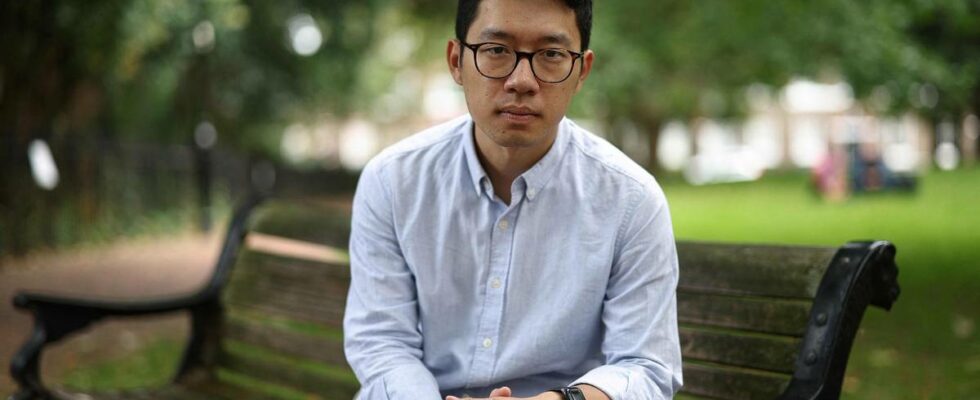Hong Kong’s new security minister cancels the passports of six pro-democracy activists who now live in the UK. They fled Hong Kong after the controversial security law was introduced in the summer of 2020. Last year, a bounty of NOK 1.37 million (HKD 1 million) was promised for thirteen activists, whom the authorities accuse of violating the security law. All six who are now affected are on this list. The newspaper South China Morning Post (SCMP) writes that. – Must deter The six are former lawmaker Nathan Law, experienced union representative Mung Siu-tatt, and activists Simon Cheng, Finn Lau, Fok Ka-chi and Choi Ming-da. The pro-democracy campaigners fled Hong Kong after the controversial national security law was introduced in 2020. They settled in the UK. The Security Act was introduced following the powerful demonstrations in Hong Kong in 2019. The demonstrations were initially peaceful. Eventually there were street battles between demonstrators and the police. Around one million took part in demonstrations in Hong Kong in 2019. Photo: ISAAC LAWRENCE / AFP – These six named fugitives have been given shelter in the UK. They have continued their conspiracies with external forces, and are taking part in actions that endanger the security of Hong Kong and our country. This is what security chief Chris Tang Ping-keung tells SCMP. The authorities have also taken measures to prevent anyone from providing financial support to the activists, running rentals or having any joint ventures with them. – This measure is intended as a response to, crack down on, deter and prevent this type of runaway behaviour, says Chris Tang. The six are accused of having tried to influence the decisions in court cases concerning national security. Protested Demonstrators meet water cannons in Hong Kong in September 2019. Photo: ISAAC LAWRENCE / AFP Nathan Law himself writes about the large and long-lasting demonstrations he was part of and which marked Hong Kong in 2019. – I found it to be fantastic and incredible, but what what happened later shattered my imagination, writes Law on X. Around a million people took to the streets in protest against a bill they feared would lead to critical voices in Hong Kong being extradited to China. Law feels that Hong Kong has become exactly what many of the protesters were fighting against. Namely, a city that is on an equal footing with all other Chinese cities. – Five years have passed, political prisoners fill the prisons, and civil society and Hong Kong as we knew it are gone, writes Law. He was granted political asylum in the UK in 2021. New security law Hong Kong got its own national security law in March this year, called Article 23. It comes in addition to the already hard-hitting security law introduced in 2020. The new security law lists 39 new crimes . This applies, among other things, to espionage, treason, interference from outside, and illegal handling of state secrets. Offenders can be sentenced to life in prison, writes CNN. The first arrests under the new security law took place in May. Then six people were arrested, suspected of having posted “seditious” content on social media. Chow Hang-tung was one of the leaders behind the annual June 2 commemoration in Victoria Park. Photo: Kin Cheung / AP End of commemoration One of the arrested is called Chow Hang-tung. She has been one of the leaders who organized the large commemorations in Victoria Park on the fourth of June every year. Hong Kong was the only place on Chinese soil where the “Tenmen Square Massacre” could be commemorated: An unknown number of students and union activists died when the authorities sent in tanks to end demonstrations in Beijing on the night of the Fourth of June in 1989. Freedom of expression was for a long time Hong Kong’s great pride. Now it is no longer allowed to mark the event. British rule The British have felt a special responsibility for the inhabitants of the former British colony. They have had an open door for activists who left Hong Kong in the aftermath of the demonstrations. Hong Kong became a British colony in 1847. With the exception of Japanese occupation during the Second World War, British rule of the area continued until 1997. Hong Kong was then returned to China, but with the promise that it would operate under the umbrella of “one country two system”. Foreign policy spokesperson and deputy chairman of KrF is very concerned about developments in Hong Kong. – In recent years, China has put liberal rights in Hong Kong very far back. The fact that wearing a t-shirt with the text “Free Hong Kong” is now a crime in Hong Kong illustrates how critically pressured the situation for freedom of expression is in Hong Kong now, says Dag-Inge Ulstein to news. Hear also: Published 12.06.2024, at 08.19 Updated 12.06.2024, at 12.58
ttn-69
Hong Kong activists are stripped of their passports – news Urix – Foreign news and documentaries

